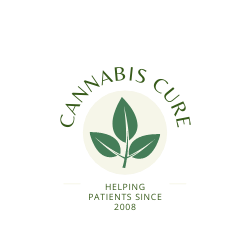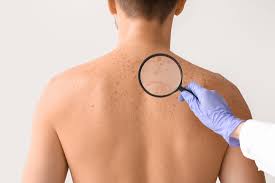Skin Cancer
Skin cancer, specifically melanoma skin cancer, is the fifth most common cancer in the UK with around 16,000 new cases diagnosed each year.
The abnormal growth of skin cells generally appears as a new mole or a change in an existing mole and are more likely to develop on the chest and back for men, while women are more likely to develop these moles on their legs. New research released by Cancer Research UK states that there has been a 150-per-cent increase in skin cancer deaths since the seventies, with the greatest being among men, cited at three times higher than 50 years ago. This increase has been put down to increased sun exposure, sunbed usage, and higher levels of UV light. The good news is that nine in 10 cases are caught early, the charity added.
What types of skin cancers are there?
There are three types of cells in the epidermis: squamous cells, basal cells, and melanocytes.
Melanoma is the more serious but less common category of skin cancers and begins in cells known as melanocytes, the cells that give your skin colour. It typically starts in a mole or in normal-looking skin before spreading to other organs in the body and can also form in places that don’t normally receive sun exposure.
Melanoma can be cured if it’s identified and treated early so regular skin cancer checks with a dermatologist or one of the skin cancer clinics around the country are recommended. Your GP can always refer you if you’re unsure.
The second type is mon-melanoma cancer – around 147,000 new cases occur each year in the UK – and is most likely to appear in parts of your body that get the most sun, like your head and neck. This type of cancer usually appears as a lump or discoloured patch on the skin as basal cell carcinoma (BCC) or squamous cell carcinoma (SCC). These carcinomas are less likely to spread and become life-threatening but if left untreated, they can grow larger and eventually spread to other parts of your body.
What are the symptoms?
Look out for a new mole, or any skin abnormality like an unusual growth, bump, sore, scaly patch, or dark spot that doesn’t go away, and any asymmetry in the lesion or mole that aren’t even or identical. Ragged, uneven edges, atypical colour such as white, pink, black, blue, or red, if the diameter seems large or if it’s simply changing size, colour or shape.
What are the risk factors?
Overexposure to ultraviolet (UV) light is the main cause of skin cancer. UV light comes from the sun, as well as from artificial tanning sunbeds and sunlamps. Other risk factors include a family history of skin cancer, pale skin that burns easily, a large number of moles or freckles, or a suppressed immune system.
How can medical cannabis help with skin cancer?
To date, scientific research on how cannabinoids – naturally-occurring chemical compounds in medical cannabis that can treat cancer – have almost entirely taken place in a laboratory or in animal models, which means medical trials on humans are necessary.
What we do know is that the body naturally produces cannabinoids, like the cannabis plant, which are called endocannabinoids (from ‘endogenous’ which means ‘growing or originating within an organism’).
Our endocannabinoid system is responsible for maintaining homeostasis within the body and regulates a variety of functions including sleep, digestion, pain, memory, fertility, inflammation, mood, and cognition. Our endocannabinoids bind to endocannabinoid receptors, of which there are two types: CB1 receptors, which are in the brain and central nervous system, and CB2 receptors, which are in the immune system. Enzymes then break down endocannabinoids once they’ve carried out their intended function to continue homeostasis.
When our endocannabinoid system becomes unbalanced – when the body isn’t correctly making endocannabinoids, if there aren’t enough receptors, if there is an overabundance of enzymes, or if there isn’t adequate communication between our endocannabinoids and receptors – we experience health problems like stress, insomnia, illness, and disease, including cancer. Ingesting medical cannabis allows the plant’s cannabinoids to mimic the natural compounds in our body and bind to our CB1 and CB2 cannabinoid receptors, helping the body function properly again.
A mix of studies listed in the journal Nature Reviews Cancer describes the effects medical cannabis has had on cancer cells in the lab, which include:
- Triggering cell death, through a mechanism called apoptosis
- Stopping cells from dividing
- Preventing new blood vessels from growing into tumours
- Reducing the chances of cancer cells spreading through the body, by stopping cells from moving or invading neighbouring tissue
- Speeding up the cell’s internal ‘waste disposal machine’ – a process known as autophagy – which can lead to cell death
It even appears that cannabinoids can exert effects on cancer cells that don’t involve cannabinoid receptors, but this remains a vague area.
If you’re opting for the conventional medicine route, which typically includes chemotherapy and radiation, medical cannabis can also soothe side-effects that include fatigue, nausea, appetite loss and pain, and more, helping you regain a quality of life again.
How can medical cannabis directly affect skin cancer tumours?
In a 2006 study titled Cannabinoid receptors as novel targets for the treatment of melanoma, the researchers state that human melanomas and melanoma cell lines express CB1 and CB2 cannabinoid receptors and that activation of these receptors decreased growth, proliferation, angiogenesis and metastasis, and increased apoptosis, of melanomas in mice.
Another study published in the British Journal of Pharmacology in 2013 showed that several cannabinoids including cannabigerol (CBG), non-psychoactive cannabidiol (CBD), and cannabidivarin (CBV) appeared to ‘switch off’ skin cells that grow uncontrollably.
In Tokyo, a study in 2013 conducted by the Tokyo Metropolitan Institute of Public Health on mice revealed that cannabis oil treatments for skin cancer were effective at reducing it by as much as 90 percent over 20 weeks. The cannabinoids were shown to initiate two processes: apoptosis or cell death and autophagy, a natural process in which the body’s cells clean out any damaged or unnecessary components.
A 2015 study published in the Journal of Investigative Dermatology treated mice graphed with melanoma cells using a cannabis oil preparation consisting of tetrahydrocannabinol (THC) and cannabidiol (CBD). In the study, researchers from Italy, Spain, and England found that the combination triggered the death of melanoma cells, through autophagy and apoptosis, mentioned above.
Finally, a 2018 study by the Augusta University Medical Centre in Georgia found that CBD also reduced tumours in mice. The mice were split into groups and given either a CBD, cisplatin, a chemotherapy medication, or a placebo treatment.
The placebo group died after an average of 15 days. The mice treated with CBD had an average survival time of 19 days, leaving the cisplatin-treated mice as the longest living group, with an average life span of 24 days. While the CBD treatment did reduce the cancerous growth, after 14 days the mice given cisplatin had the smallest tumours, followed by the CBD and placebo groups. Still, the researchers say that the mice given CBD had a higher quality of life, with improved movement and less hostility.
In 2003, Rick Simpson, an engineer from Canada, discovered three unusual bumps that turned out to be basal cell carcinoma, a non-melanoma form of skin cancer but within days of him topically applying cannabis oil, they disappeared.
The Rick Simpson Oil, which has higher levels of THC compared to CBD and other therapeutic cannabis oils (around 60 to 90 percent), is now the most famous medical cannabis protocol in the world and has been translated into over 70 languages.
Further Reading
How and where to safely buy RSO medical cannabis oil online
Support and advise
If you need advice or help with Medical Cannabis and RSO, please use the contact form provided. We try to answer all emails within 24 hours and are happy to help and advice on all aspects of medical cannabis treatments in complete confidence.
Disclaimer: Please note that whilst we consider ourselves subject matter experts regarding medical cannabis, we are not medical professionals. We are an information resource and there is still limited evidence that medical cannabis can cure all the illnesses we discuss here. We recommend you do as much research as possible, and where practical seek professional medical advice before proceeding with Medical Cannabis oil.

